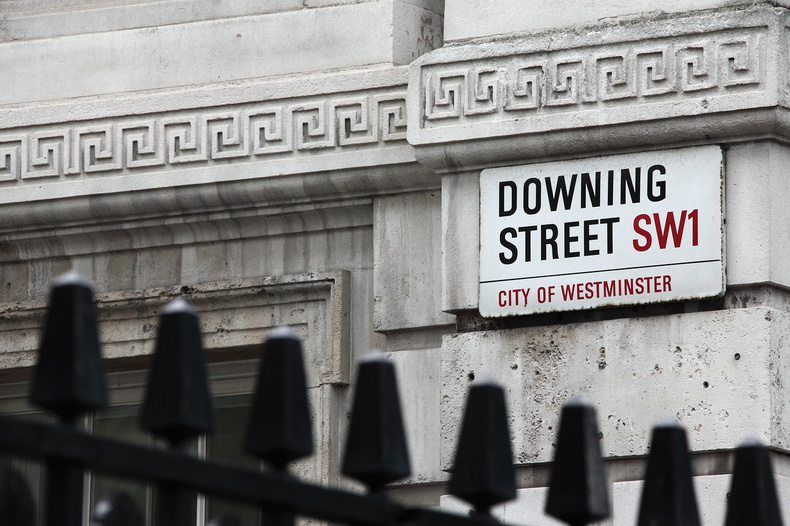Election 2024: Chamber members react to Labour's landslide victory

Greater Birmingham Chambers of Commerce members have been reacting to Labour’s landslide General Election victory.
Sir Keir Starmer will become the new Prime Minister after his party swept to power, less than five years after suffering their worst election defeat in almost a century.
Here is what Greater Birmingham business leaders are saying about the result:
John Webber, head of Business Rates at Colliers:
“Given the size of the landslide victory, there should be no excuse for the Labour party to avoid addressing the business rates problem or to introduce significant reform. We urge reform, as opposed to abolition, to ensure local authorities continue to receive the stable funding they need.
“After more than 30 years of mismanagement from successive governments, we now have a multiplier which at over 50p in the pound, means a 50 per cent tax on property occupation, a complicated relief system with business rates deserts in some parts of the country and an appeal system that’s inefficient, lacking transparency and increasingly difficult for businesses to negotiate without an adviser. The current system is just not fit for purpose.
“British business deserves more. Let’s hope Labour listens to what we and other professionals and businesses in the sector have been calling for- and don’t just throw the baby out with the bath water.”
Gareth Jones, managing director of In-Comm Training:
“To be fair to the Conservatives, they did put apprenticeships back on the map and reignite its credibility among learners, parents and employers.
“This was no small feat, but now the baton has been passed to Labour to build on this evolution and there have already been some big promises leading up to this election – widening the scope of the Apprenticeship Levy would be a very welcome move for example.
“Channelling further funding to schools to boost English and Maths standards is the right thing to do. Too often, young people leave without achieving these GCSEs and we have to step in to deliver the functional skills they require to start a pathway into vocational learning. Why should we have to do something in a short period of time that schools haven’t achieved in five years?
“The future of skills provision will be very interesting under the new Government. In recent years, capital grants and funding have been strategically available for the right projects and the right private sector providers, and this has ensured that access to training is more employer-led, impactful and delivering the skills industry actually requires.
“This must be maintained, and we can’t go back to the period where money was just given to public-owned universities and colleges.”
Andrew Goodacre, CEO of Bira (British Independent Retailers Association):
“The Labour party won on a mandate of delivering change and we urge the new government to deliver positive change for high streets and independent retailers.
“We know there is a commitment to reforming business rates – that needs to happen at the earliest opportunity to protect high street businesses. We also need to see the commitment to investing in our town centres and local areas, where independent retailers play such a vital role in the local economy. We also hope that the nature of this election result boosts consumer confidence, resulting in economic growth.
"As always, actions will speak louder than words and Bira's work to engage and influence government policy under Labour begins today.”
Jonathan Cox, partner at law firm, Anthony Collins:
“For more than a decade, Britain has been stuck in a low-growth economy where historic problems, many of them affecting the most vulnerable people in our society, have been left unaddressed, constrained by a culture of austerity.
“Successive geopolitical and economic shocks including Brexit, the pandemic and the war in Ukraine have undermined business confidence and encouraged short-term thinking. Many sectors have suffered chronic underfunding and a lack of investment, which has placed them in a spiral of decline. Coping with high interest rates, inflationary cost increases and skills shortages has become part of ‘business as usual’ for private and public sector organisations across industry sectors.
"To deliver on Labour’s manifesto pledges, Keir Starmer’s Government must demonstrate that it is ready to take radical action to tackle the big issues of the day. It must be bold and break the cycle of decline that is affecting many industry sectors by restoring economic stability so businesses and organisations can plan for the long term and invest in the future.”
Patricia Colden, MD and founder of Colden HR:
"We have a new Labour government which signals the start of a journey to significant employment law reforms promised in the Party’s ‘Delivering a New Deal for Working People’.
“Employers need to start planning and preparing for radical changes in law which will have a significant impact on their HR policies and practices.
"Key changes will include strengthening the rights of Trade Unions and the role of collective bargaining; improving redundancy rights; making unfair dismissal a day one protection, removing the two-year qualifying period; extending the time limit for claims to be submitted to a Tribunal; and significant extension of discrimination laws."
Ranjit Dhindsa, Birmingham office leader for European law firm, Fieldfisher, on the future of Employment Law:
“Labour is expected to bring a new Employment Bill within 100 days of the Election, including a number of radical changes in relation to pay, security, inequality and discrimination. Organisations of all sizes will be affected and employers need to start planning ahead.
“On pay, the national minimum wage is set for reform with a proposal to remove the current age bands for adult workers.
“The Labour Party wants to create a single status of worker, removing the confusion between an ‘employee’ and a ‘worker’. Zero hours contracts are unlikely to be banned entirely but employers must offer regular hours after 12 weeks.
“In October a new obligation on employers to prevent sexual harassment in the workplace is coming into force. Labour has proposed strengthening this further by requiring employers to take ‘all’ reasonable steps to prevent sexual harassment.
“Dual discrimination could also be introduced, which may create up to 20 new dual protective characteristics. For example, someone who is older and female could bring a discrimination claim based on this combined characteristic.
“At the moment, Equal Pay claims can only be brought on the basis of gender. This may be extended to enable different ethnic groups and the disabled to bring claims. Labour would like to extend pay gap reporting to include ethnicity and disability, and introduce menopause action plans.
“Flexible working is set to become a default right from day one alongside the right to disconnect outside of normal working hours.
“The right to raise collective grievances and make unfair dismissal a day one right are also under consideration. The number of disputes may increase as a result and it is unclear what the impact on probationary periods will be.
“The law relating to collective redundancies is set to change, with Labour planning to introduce collective consultation where 20 or more employees are affected across a business. This would cover redundancies over multi sites and different groups of employees. Employees will also have six months to bring claims rather than the normal three months.”
Johnathan Dudley, partner and head of manufacturing at Crowe:
"We have set out a clear agenda for the new government to deliver manufacturing success in our manifesto. Real ideas from real manufacturers.
"I’m looking forward to a period where lower inflation will drive lower interest rates and the commercial economic growth that the country so desperately needs."



